Tradition.
TRADITION!
Tradition?
Thanksgiving is a holiday I have always spent with my dad’s family. And Thanksgiving is “my dad’s holiday.” My Aunt Sarah does Channukah and my Aunt Amy does Passover. (You can almost hear Tevya, snapping his fingers and curling his wrists.) The Thanksgiving location has changed over the years as my dad and stepmom have seized the opportunity to live a somewhat nomadic lifestyle, but the details of the meal have remained fairly constant.
My dad handles the sweet potatoes. Outside of Thanksgiving, the only things I have ever known my dad to cook are meatloaf (please no, not ever) and an unbearably delicious steak. His sweet potato “draws a little from my mom,” but he has also “picked up a few things” over the years and “added his own twists,” like caramelized pecans and bourbon. Aunt Sarah makes the mashed potatoes with chives and a salad, and Aunt Amy brings the buns and apple pie. (I may already be getting grief for misremembering that one of my aunts usually brings much more than that, like multiple bottles of very expensive pinot noir. (I’m SORRY!) My stepmom slaves over the turkey for days, makes the gravy, sweats (hope not!) over the stuffing and handles everything else. As I’ve gotten older, I’ve even begun to contribute to the meal, and Adam’s culinary cocktailing may be expected to reappear for dinners to come. And then all of us. Around a big table, talking over each other, asking someone to pass a dish 37 times, exasperation, bursts of laughter, every year, over the same food, all of the same irritations and, still, acceptance. Thanksgiving is an intensely comforting time of year to me.
So, TRADITION! …… Or tradition?
This gondi dish is me . . . politely and hopefully suggesting that you GO BEYOND a roasted turkey for this year’s Thanksgiving dinner. Now, I have ZERO illusions about my family. In fact, someone’s probably texting me right now saying, “Forget it. You know what I’m referring to.” So, yeah. This is me . . . cowardly and cautiously begging you to eat the meal I cannot live.
Gondi — pronounced go-n-dee — is a Persian Jewish dish traditionally made from chickpea flour and some type of ground meat (either turkey, chicken, or lamb), rolled into balls, cooked in a clear broth, and served on Shabbat. Kind of like matzo ball soup. But that’s not how my family does it. In Anthony Bourdain’s show Parts Unknown, he recently traveled to Iran where he noticed that if you go into 40 homes, you will find 40 different ways to make the same dish. Learning to cook “traditional Persian food” can be maddening to the novice cook for this reason. But there’s something so incredible about the recipes taking on their own shape inside each home such that they almost become family heirlooms. So naturally, in my family, the gondi are made from ground turkey, spiced up, and loaded with cups and cups of all the best herbs, cooked in a mildly sour sauce made from tomatoes and dried lemon, and eaten whenever.
Once you have convinced your family to evolve this Thanksgiving, the most important part of this recipe is to leave your home after these have cooked and walk back inside. Do you smell that? That’s my childhood. My great-grandma, Mama, and my grandma, Amo, spending hours and hours feeding all of us unbearably delicious, fragrant Persian meals. It also reminded Adam of his Tunisian grandmother’s cooking. Something about the flavors just makes you want to curl up and look through old photos . . . anyone’s, really.
So which one is it? In the end, I think it’s more like tradition?! We should question it, allow it to evolve, but also know when to embrace it. Gondi, cooked this way, is intensely comforting, and I hope that you create new memories and new traditions with this dish on your table, whether its for Shabbat, every day life, or even for Thanksgiving. Enjoy!
Makes 12 tennis ball sized gondi, or 15 smaller gondi
Recipe slightly adapted from a family recipe I received from my grandfather’s niece, Linda.
What You Need
For the Sauce
1 medium onion; diced (about 2 cups)
1/2 tsp olive oil
1 tsp salt
1 tsp ground turmeric
1/4 tsp ground pepper
3 T tomato sauce (OR — I blended a can of diced tomatoes because I didn’t have tomato sauce and it was great)
2 fresh tomatoes; diced (about 1 cup)
2 dried lemons; cracked or punctured – see photo below – (or 1 tsp dried lemon powder) *you can find these at any Middle Eastern grocery store and sometimes at Asian markets.
6 cups of water (or vegetable/chicken stock) + approx 3.5 cups of water if you use brown rice (see below)
For the Gondi
1 onion; ground (about 1 cup)
1 lb of ground turkey
1 c raw, white basmati rice (*you can use brown rice if you prefer, but you will need to cook the gondi for 1 – 1.5 hours; also, continue adding water, approximately 3 cups, throughout the cooking process so the gondi remain submerged)
2 bunches of parsley; finely chopped (about 2 cups)
1 bunch of cilantro; finely chopped (about 1/2 cup)
1 little bunch of mint; finely chopped (about 1/4 cup)
1 bunch of dill; finely chopped (about 2 cups)
1 bunch of tarragon; finely chopped (about 1/4 cup)
1 tsp turmeric
1 tsp salt
1/4 tsp pepper
1 tsp cumin
How To Do It
This dish can be made in advance, frozen and thawed when you’re ready to eat it. It also holds up well in the fridge for several days and, in my opinion, tastes better the longer it sits.
Start with the sauce: in a large sauce pan, heat the oil over medium heat. Add the onions when the oil is hot enough that the onions would immediately sizzle. When the onions are translucent, add all the ingredients (tomato sauce, chopped tomatoes, salt, pepper, turmeric and dried lemons) for the sauce except for the water. Saute for about ten minutes. Add the water and bring the sauce to a boil. Allow sauce to boil for about five minutes and then turn off the heat.
*Note: to cook with dried lemon, use your hand or the bottom of a glass and apply pressure to the lemon. You want to crack it open so its unique aroma can pervade the stew. You can also use a knife and very carefully pierce part of the dried lemon in a couple of places. Same idea.
For the gondi: Combine all the ingredients (ground onion, rice, cumin, turmeric, salt & pepper, herbs) and mix well with your hands. Bring the sauce back to a boil. Shape the gondi to the size of a tennis ball or slightly smaller and add them to the boiling sauce. Add just enough water to cover the gondi (this is so the rice fully cooks). You may need to push the gondi around in the pot to make enough room. Cook over a simmer for about 40 minutes.* You’ll know it’s ready when you taste part of the gondi and the rice is thoroughly cooked. Walk out of your home and then come back inside. OMG that smell! Welcome to my childhood.
*Note: If you use brown rice, cook the gondi over a simmer for 1-1.5 hours, continuing to add water so that the gondi are always slightly covered. If you find your dish is more liquidy than you would like, cook it uncovered until the sauce reaches your desired thickness.

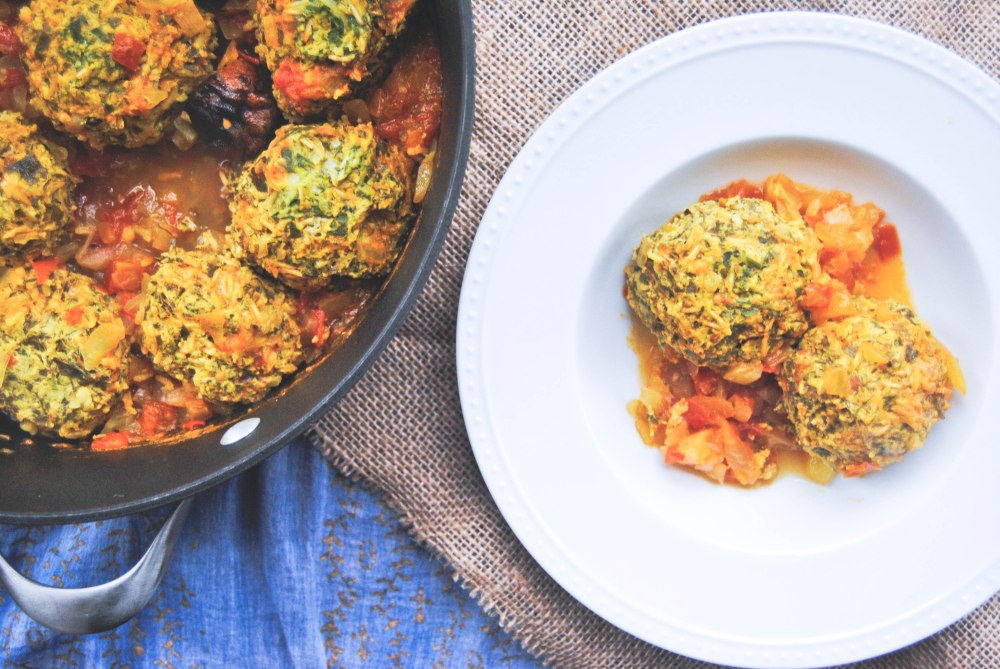
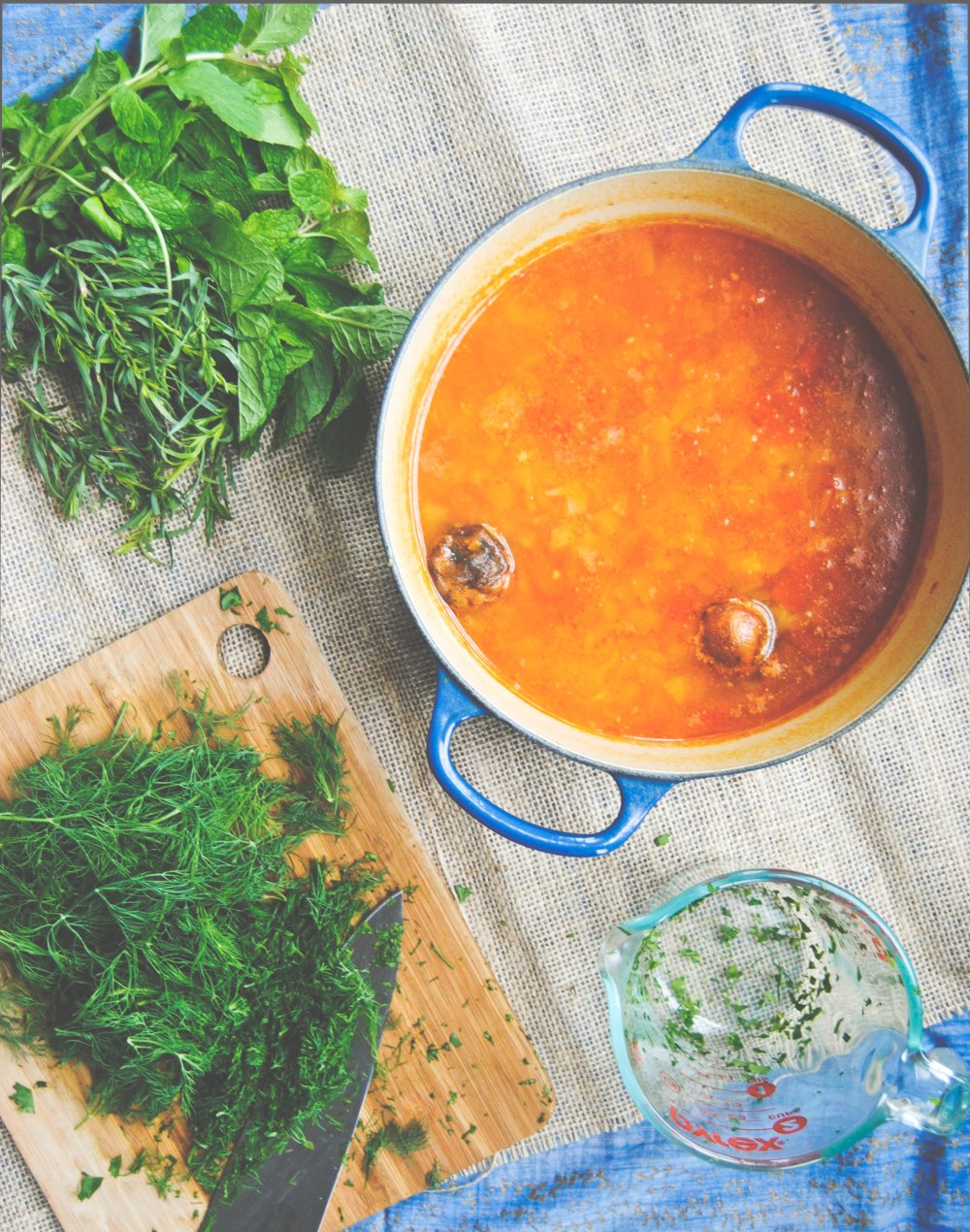
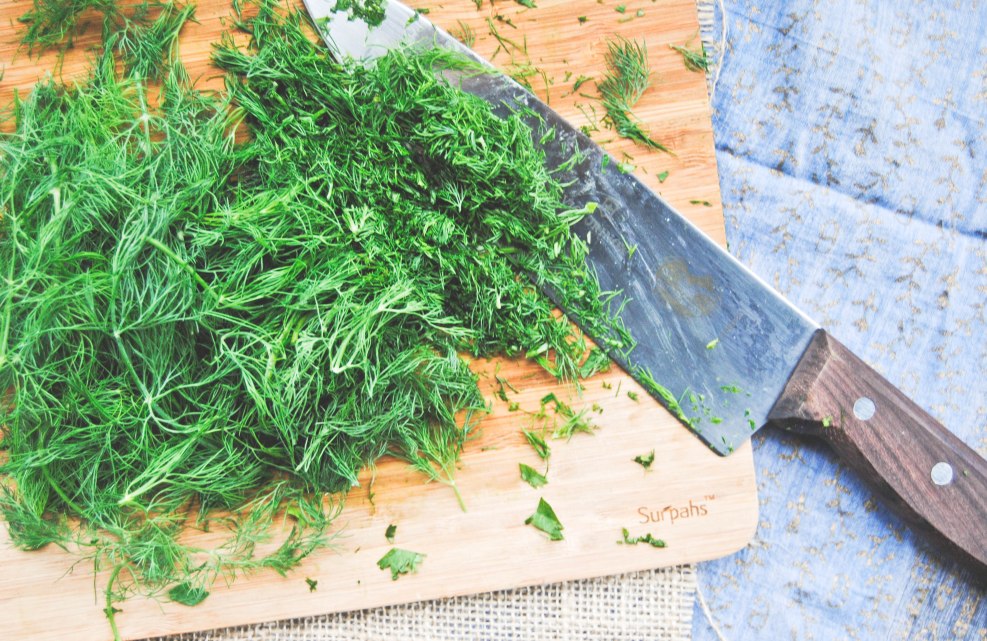
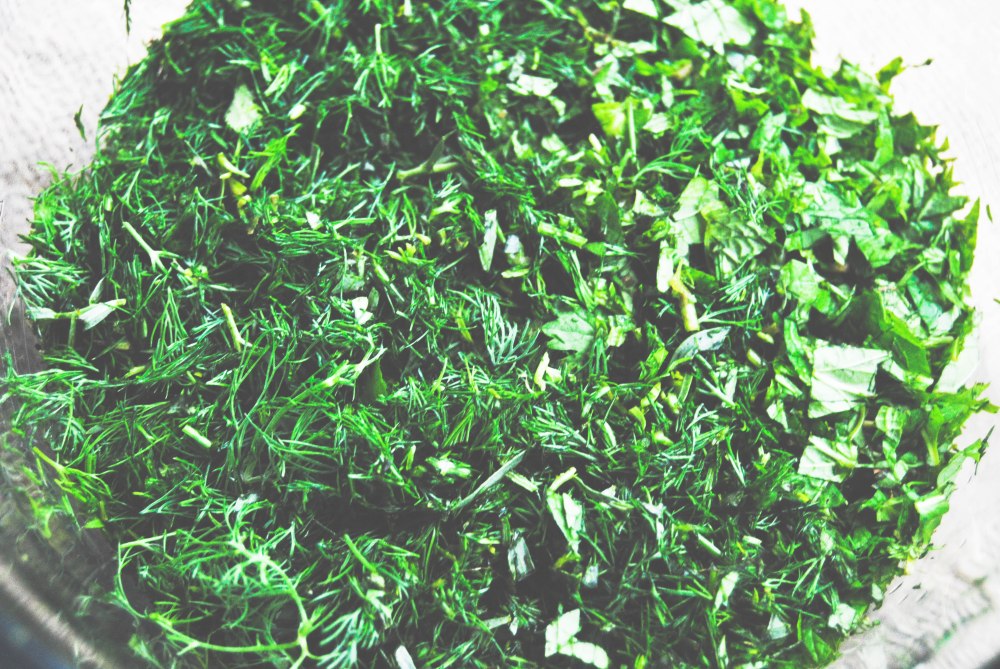
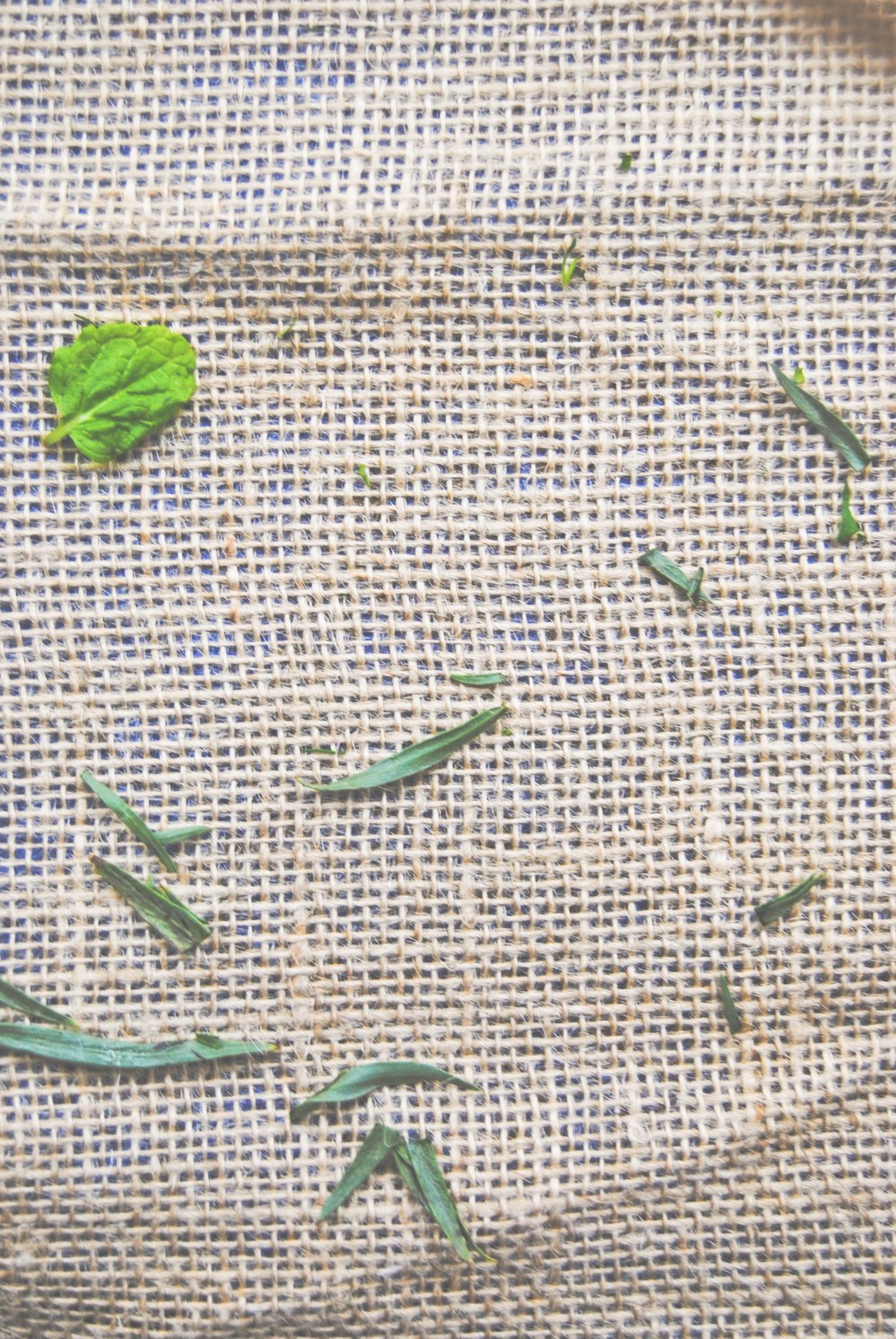
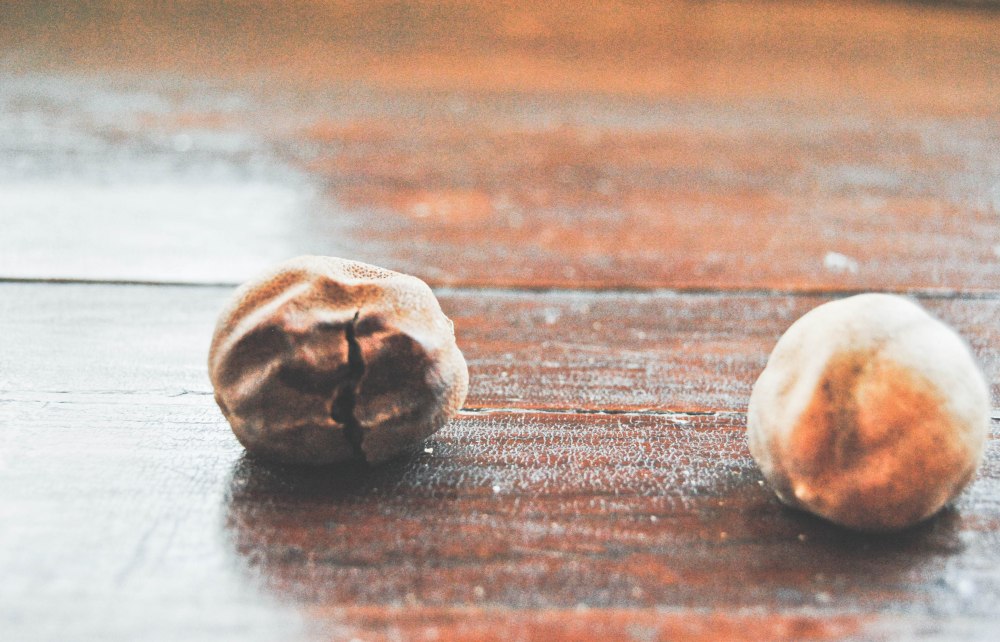
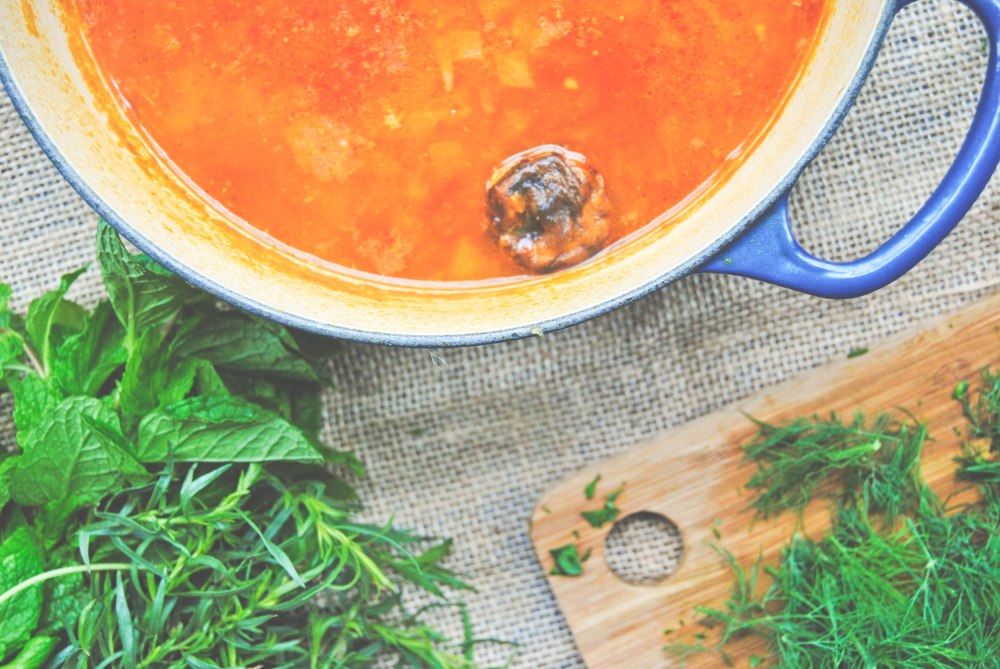
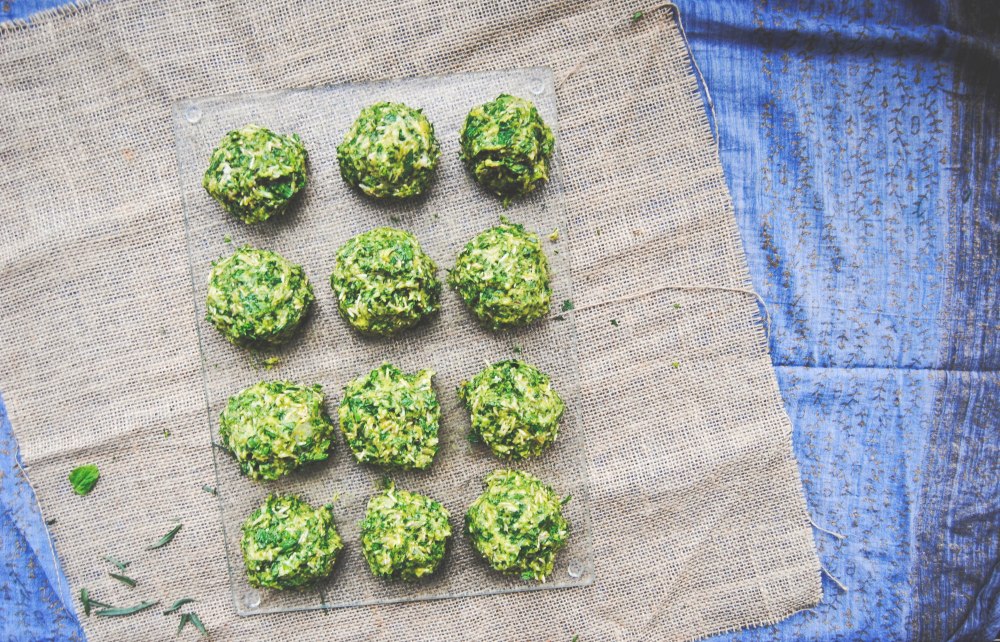
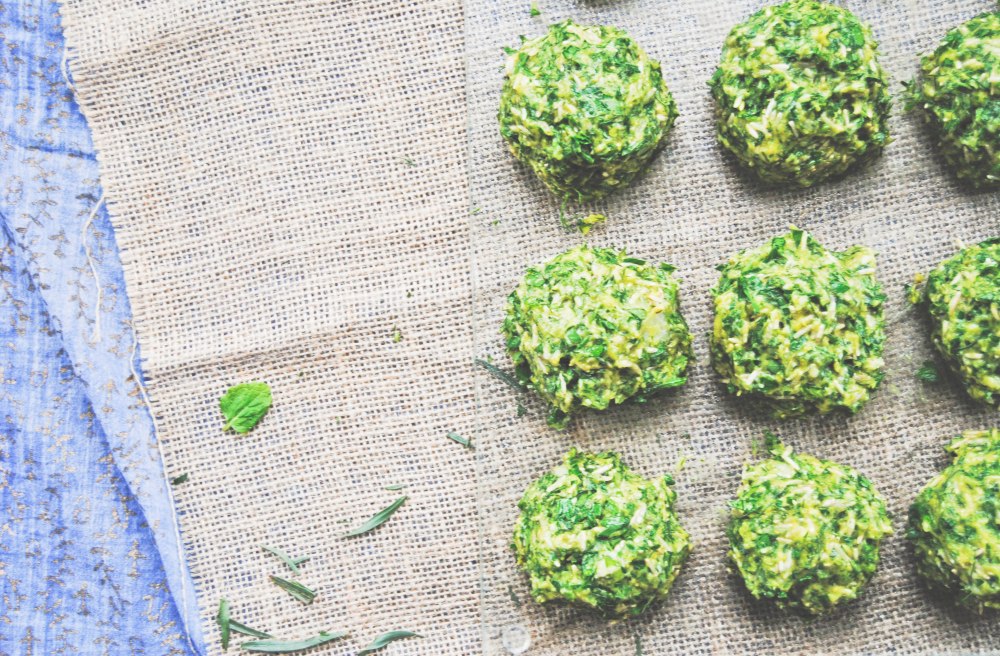
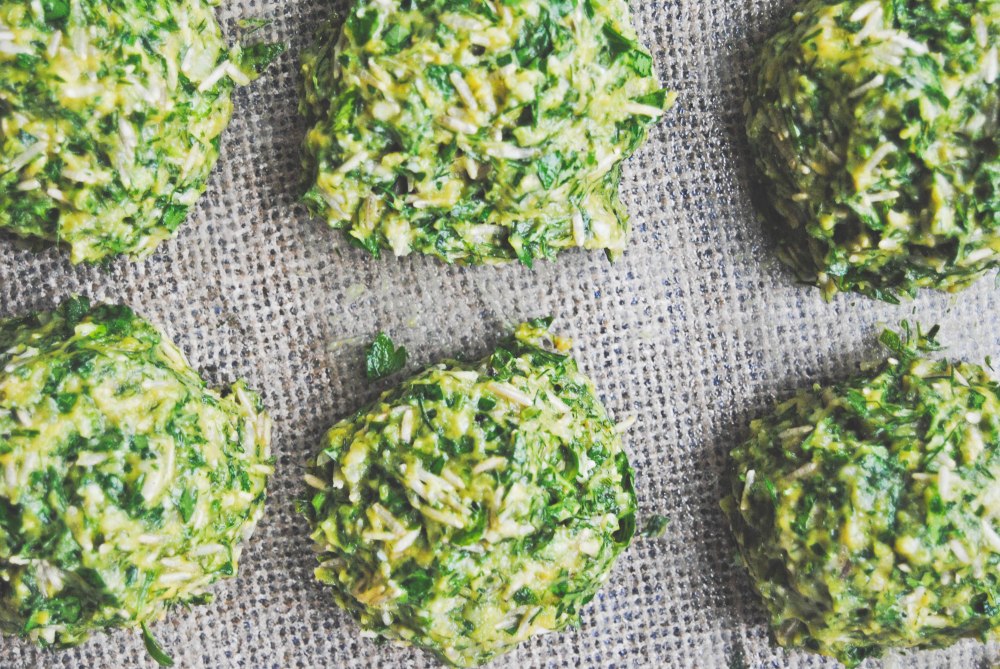
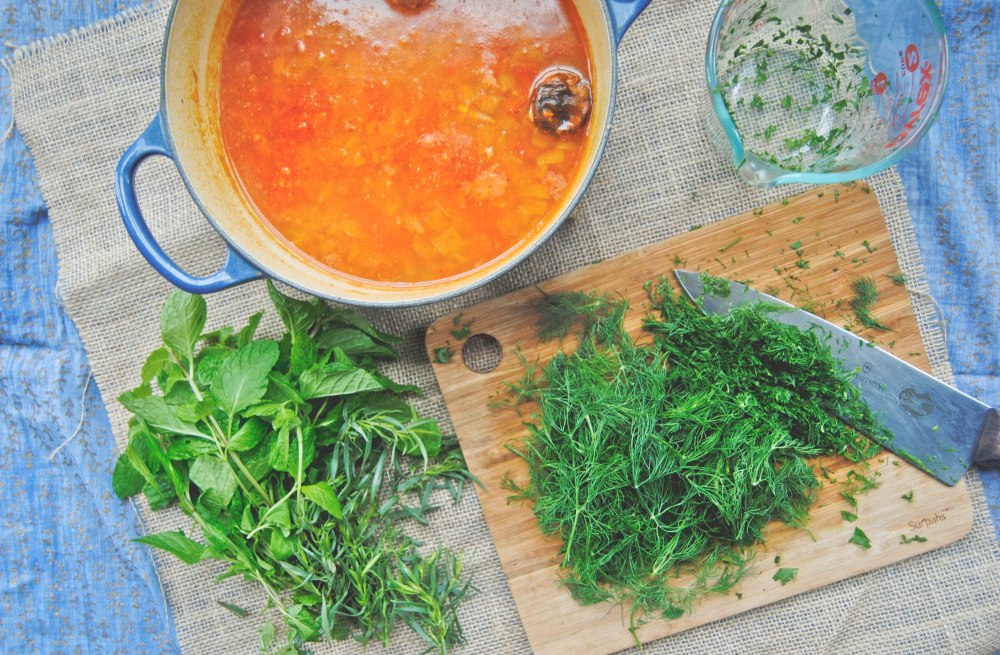
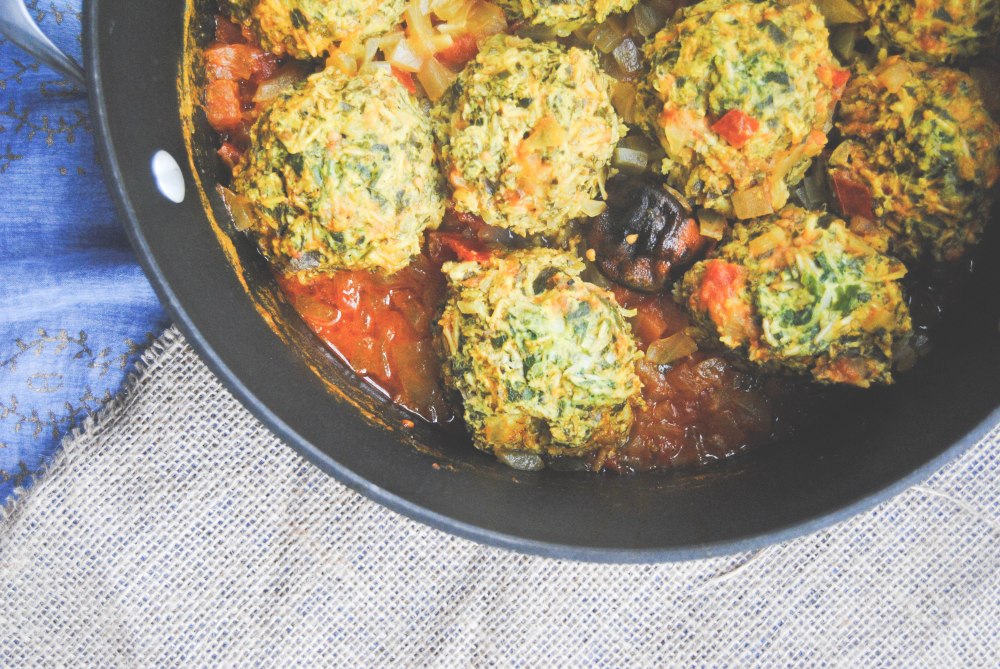
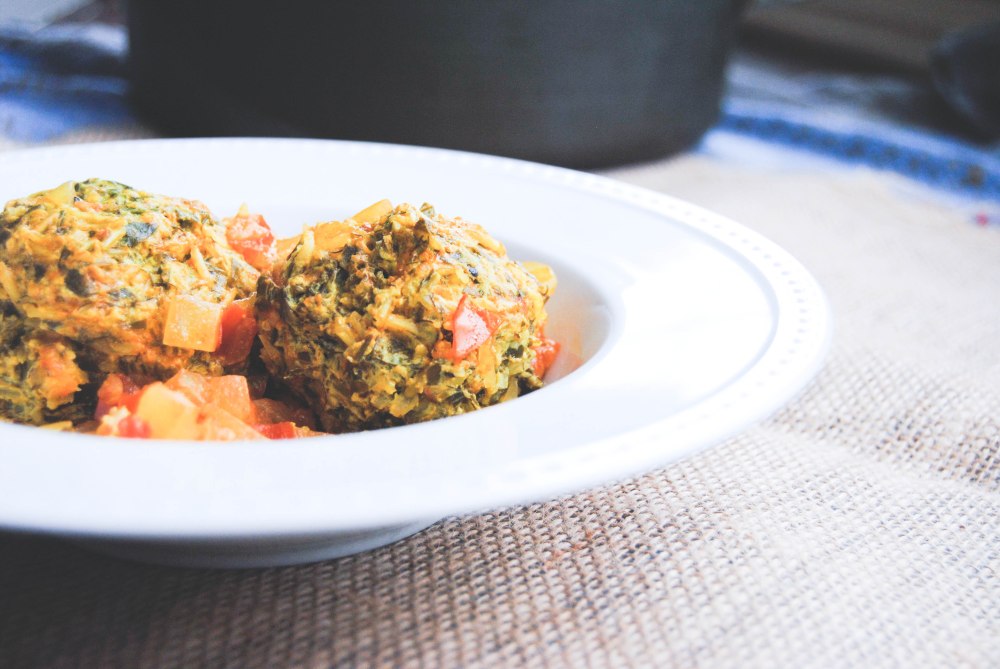
Tehse sound so delicious! I love the sheer amount of green, green herbs in each meatball.
Hi Eileen – YES! Me too! Hope you enjoy them!
These meatballs look amazing, I can almost smell the aroma of the sauce and the meatballs!
Thank you for sharing with us this wonderful traditional dish
Shabbat shalom,
Silvia
Thank you, Silvia! Maybe you’ll make them one Shabbat? Let me know! Love, Lauren
Just wanted to check in and say Hello!
You are a great cook, I’ve been following your blog for a month now and I’ve made 6 of your recipes (mostof them are now on regular rotation, Thank you!)
All of your recipes are fragrant and delicious (This one especially so)
These gondi are great, I kept popping back into the pan all night to have more.
However, the gondi didn’t hold their shape when I made them.
Any suggestions on what I might have done wrong?
Hi Jessica,
I’m so happy that you’ve found some recipes that you love! And I’m sorry that the gondi didn’t keep their shape. My best guess is that the gondi weren’t submerged during the cooking process. They have to be under water at all times. If you don’t think that was the problem, my next guess is that they may have lost their shape when dropped into the pot or if you moved them while they were cooking. It’s best to add them slowly and to just let them sit while they cook, moving them gently if you need to. I hope this solves the problem because I’d hate for you not to enjoy them!
wow I’ve heard my persian friend talk about Gondi several times but never actually got to taste it. Now I just know I have to try it!!! This was such a great post and I totally agree that Thanksgiving should venture away from the traditional turkey and sweet potato dish, why not! That is what makes America such a cool place we all come from different cultures and background
http://www.batlemiller.wordpress.com
Thank you so much! Let me know how they turn out!
Hello — this is such an interesting take on gondi! Would you happen to know what part of Iran your family is from? So curious!
Hi Tannaz, my family is from Tehran. My great grandma grew up in Hamadan, but that was a while back.
Hi there! This recipe looks so good but how much tomato sauce should one use? I don’t know what “T” means!
T means tablespoon.